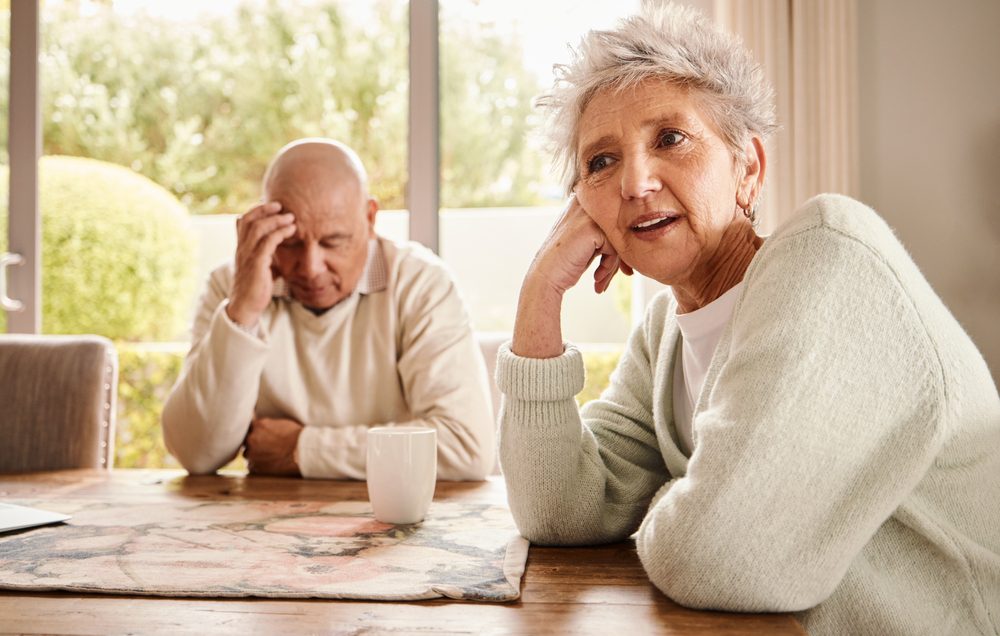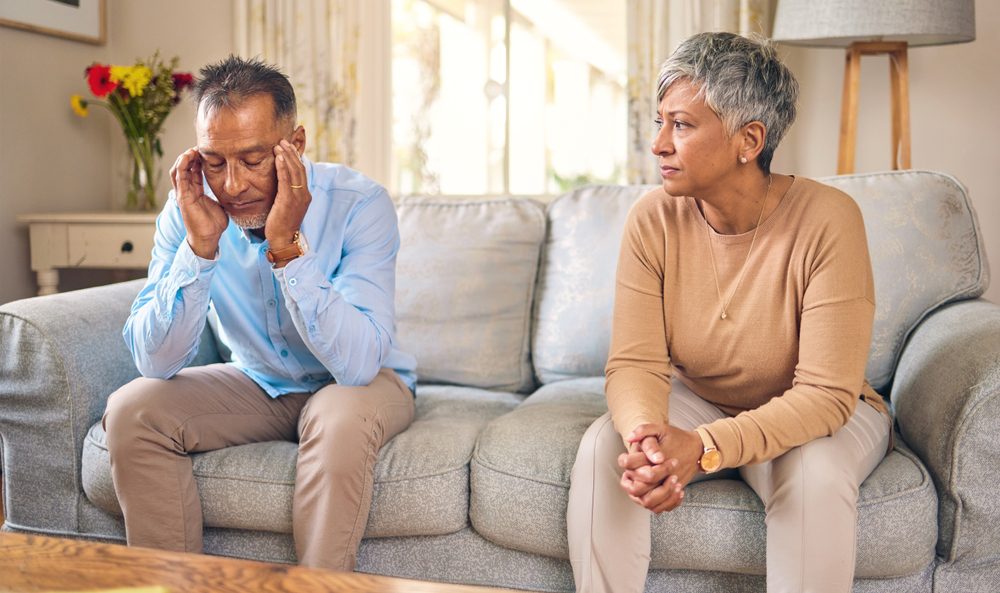Depression affects many people. How do we deal with it?
Depression, medically called clinical depression or major depression, is an affective disorder marked by at least two weeks in a row with a low mood compared to most situations that affect professional or personal life.
Often, it can be accompanied by low self-esteem, low energy, and loss of interest in activities that were previously enjoyable.
Doctors are estimating that depression will become the second leading cause of disability worldwide after heart disease. Currently, 121 million people are diagnosed with depression.
Researchers believe that only a small number of people are aware that they are suffering from depression and are willing to seek help. Possible reasons are fear of social stigma, ignorance and personal pride.
The best way to find out if you have depression is to be informed. Therefore, in the following article you can read about the symptoms of the disease, risk factors and causes, the main types of depression, how it is diagnosed, how it can be treated and what can be done to prevent it.

What are the Symptoms?
According to the Mayo Clinic, the symptoms of depression are complex and are different from person to person. In general, a depressed person feels sad, has lost interest in activities that bring him pleasure (music, movies, sports, going out with friends) and seems hopeless.
Symptoms may persist for weeks or even months and may affect work, family life, and social life. Very rarely a depressed person has all the symptoms, he/she usually shows some of the following symptoms:
- A continuous bad mood;
- Feeling helpless;
- Lack of hope for the future;
- Low self-esteem;
- Feeling guilty;
- Irritability;
- Intolerance of others;
- Lack of motivation;
- Lack of interest in various things;
- Difficulty making decisions;
- Absence of joy in life;
- Continuous feeling of anxiety;
- Suicidal thoughts and physical harm;
- Slow movements and slow speech; Appetite changes;
- Weight loss or very rarely weight gain; Constipation;
- Headaches;
- Muscle and/or joint pain;
- Lack of energy;
- Low libido;
- Menstrual cycle abnormalities;
- Sleep problems;
- Avoiding contact with family/friends;
- Neglecting passions or hobbies;
- Difficulties in performing tasks related to work or home.
Risk factors
Risk factors increase the likelihood of developing a certain condition. Regarding depression, there are several risk factors that may be involved, including genetic, psychological or environmental causes.
The genetic factor plays a significant role when we are talking about depression. If you have a close relative such as a parent or a sibling with depression, you have a 2-3 times higher chance of developing the disease compared to people without depressed close relatives.
People who have been through abuse or trauma, especially in childhood, have a higher risk of depression. These people may also have drug-resistant depression once they reach adulthood.
Existing studies show that 62.5% of depressed people had at least two traumatic events compared to the control group in which the percentage was 28.4%.
Moreover, people with depression have a much higher risk of emotional, physical and sexual abuse and they have been also neglected as children, or harassed by friends or schoolmates, or have witnessed domestic violence.
Women have a two time higher chance of depression compared to men. Researchers concluded that women are more stressed and have a higher risk of trauma than men. Moreover, estrogen, the female hormone, appears to play a significant role.
The percentages of depressive episodes begin to be distinguished in adolescence, when young women more often face depression. Women also have a higher risk of depression during menstruation or after birth, when hormone levels fluctuate.
It is not known what causes depression. Psychiatrists believe that several biological, psychological and social factors are involved. Depression is thought to occur when there is a pre-existing vulnerability that is triggered by several events that occur during a lifetime.
Vulnerability can be genetic and/or can occur in human development, in childhood or even later.
Most doctors say that antidepressants should not be the first form of treatment for mild depression, because the risk/benefit ratio is low when we’re referring to medium/long term situations.
In general, the following treatments are recommended: lifestyle changes, psychotherapy, cognitive-behavioral therapy and then treatment with antidepressants or other medications.
There is evidence that a collaborative care of a depressed patient by a team of specialists works better than consulting a single specialist.

Here Are 10 Active Ways to Beat Depression:
1. Flexible thinking
The key to achieving emotional self-control is the power to be flexible in thinking, according to a recent study.
People who have a lower level of depression and anxiety tend to vary their strategies to control their emotions, depending on their situation and their control over it.
When the present situation can be changed, it is best to let our emotions dictate this change and not oppose these instincts. In cases where the situation does not depend on our control, it is best to try to adapt our emotions to the way things are in the situation we are in.
2. Nature walks
People who spend 30 minutes a week in the wild have a general well-being and better mental health compared to people who have not developed this habit.
A weekly walk in the park has also been linked to a drop in blood pressure, according to a recent study by a group of Australians.
3. Musical therapy
Music therapy can reduce depression in young people with behavioral problems, according to a recent study.
Also, from previous research, it is now well known that through music people with depression manage to gain self-control much faster, along with increased self-esteem, compared to people who receive medication without the help of music therapy.
The findings belong to a study conducted on 251 children, of whom only half followed music therapy, according to the quoted source.
4. Social aspect
This may be the most important factor in treating depression. It is about the social and emotional support, which the specialized studies find to be the key to success in the recovery of patients suffering from chronic depression.
Researchers found that 39% of people with depression had a full recovery as long as they had a social support group to turn to for psychological and emotional counseling and support.
In addition, scientists believe that the best ways to combat long-term depression are to adopt a lifestyle based on intense physical activity, as well as a penchant for spirituality.
5. Stop being affected by what people think
The mockery of some does not end when they leave high school, but continues much later. Psychotherapist Erin K. Leonard estimated that the percentage of those who observed individuals who make jokes about others at work at 70%.
A far too high and dangerous percentage, considering that, being constantly attacked, you can lose your self-confidence, and this is simply devastating, making you very vulnerable and weak, and depression can overwhelm you faster.
So stay away from these people and do not listen to the insults they bring you.
6. Get out of toxic relationships
If your partner makes you feel useless, incompetent, selfish and plays with your confidence, you should know that he/she is most likely wrong, so do not blame yourself in vain.
Toxic relationships facilitate depression and anxiety, so run away from these types of people as soon as you can, before it’s hard for you to find yourself as a human being again.
You don’t have to do this alone! Call on family and friends to always have someone by your side and not to feel alone at all during a breakup and healing process.
7. Stop postponing the things that are on your to do list
The longer you postpone a mission that you have to complete, the more stress you will accumulate until it becomes unbearable.
Whether you’re refusing to work because you find it boring, or you’re just afraid to mess it up, you need to get it sorted and start everything one step at a time. Besides that, it’s good to listen to some music, take a hot bath or whatever can help you relax and get serious.
8. Interact with people… in real life
Since with Facebook, Instagram, WhatsApp and other social media platforms, it is much more comfortable for you to send a message from your sofa than to make the effort to go out in the city to communicate the message face to face.
And it may seem like a good solution at first, but it’s not like that at all.
Yes, sometimes it’s faster to use different online platforms to convey something, but this doesn’t have to take the place of classic, face-to-face interactions.
At the end of the day, we are not left with the impressive number of followers we have gathered, but with the number of friends who are there for us, next to us. Not behind a monitor.

9. Have a proper walking posture
I know, you find it weird that there’s a connection between the way we are walking down the street and our mood. Psychologists have explained this phenomenon through an experiment. The way we feel can affect the way we go, but this is also true in the opposite direction.
So, people who go hunchbacked, with their heads down, will feel sadder, without the zest for life, they will even remember more unpleasant moments than those who walk with their backs straight.
10. Don’t do too many things at once
Nowadays time is not our best friend, but once we master it, we can use it to our advantage.
Even if you think that you can save some precious minutes by eating in front of the computer and at the same time finishing your job, this will affect your health, you will even get tired much faster. Make time for important things and don’t combine them.
Also Read: 8 Vitamins You Should Take On a Daily Basis





